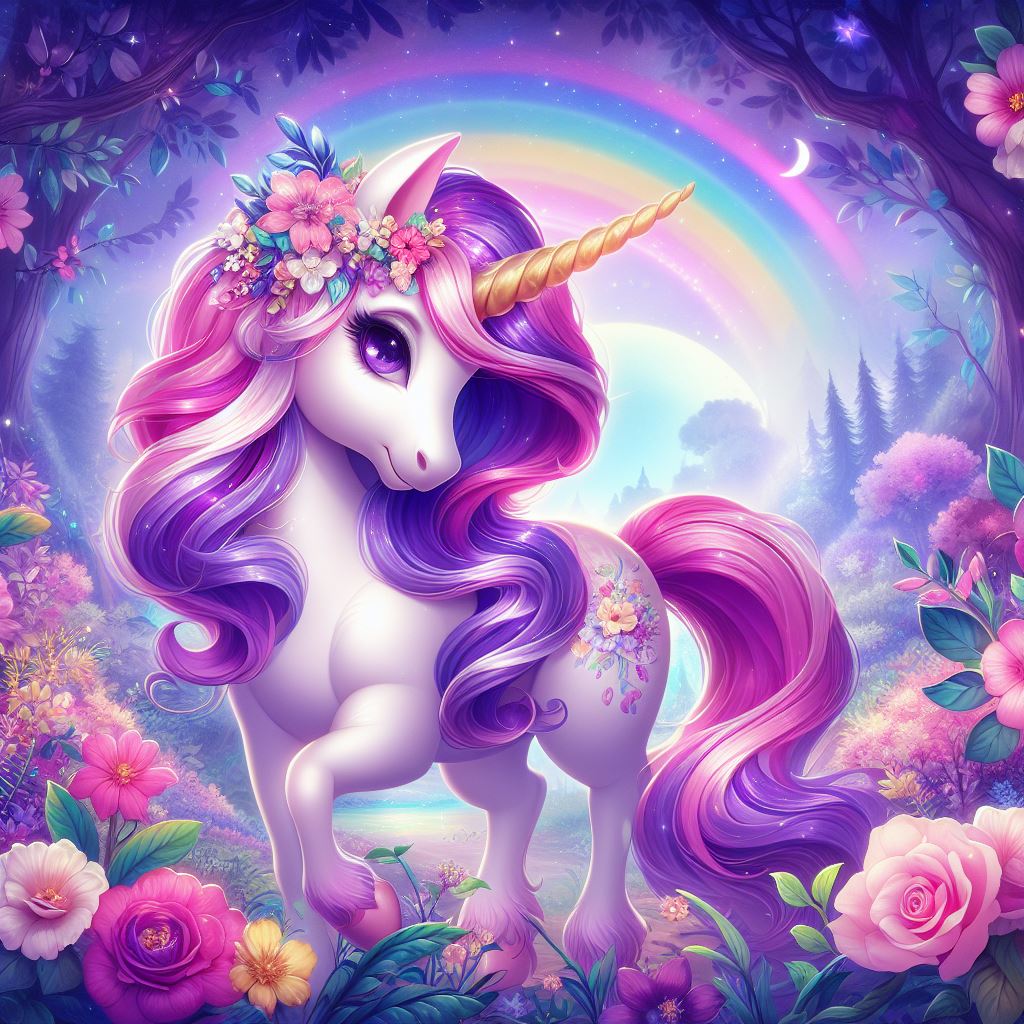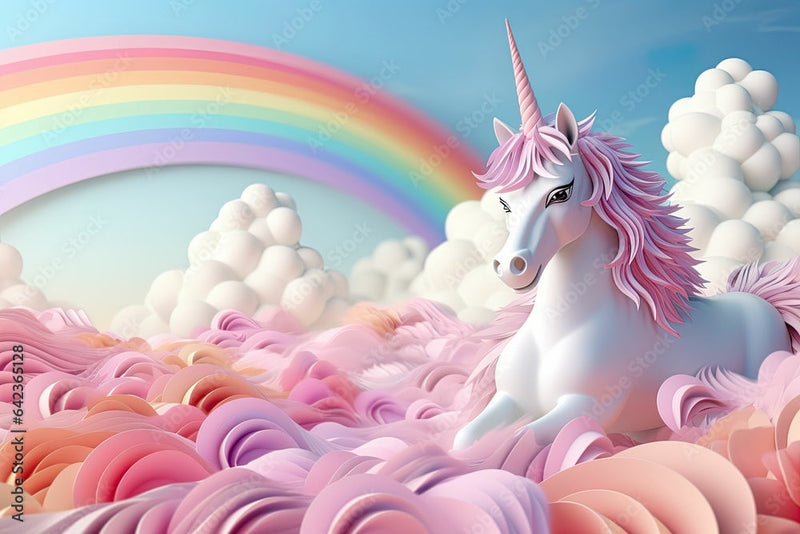Table of Contents
ToggleThe Mythical Origins of Unicorns
Unicorns have been part of folklore and mythology for centuries, appearing in various cultures and stories. The earliest references to unicorns can be traced back to ancient civilizations such as the Indus Valley, Mesopotamia, and Greece. These mythical creatures were often depicted as majestic, horse-like beings with a single, spiraling horn protruding from their foreheads. Over time, unicorns have evolved in their depiction and symbolism, becoming emblematic of purity, grace, and untamed beauty.
Unicorns in Ancient Cultures
In ancient cultures, unicorns were not just mythical creatures but were also considered to possess magical properties. For instance, in Greek mythology, unicorns were believed to have the ability to purify water and heal sickness. The ancient Greeks and Romans also regarded unicorns as symbols of strength and virtue. In medieval Europe, unicorns became associated with chivalry and were often featured in tapestries and art as a symbol of purity and divine grace.
The Symbolism of Unicorns
The symbolism of unicorns has evolved over the centuries, but they have consistently represented ideals such as purity, innocence, and magic. In medieval times, unicorns were often used in religious and allegorical contexts, symbolizing Christ and purity. They were also associated with virginity and chastity, as only a virgin was believed to be able to tame a unicorn. This symbolism extended into heraldry, where unicorns were used as emblems of nobility and strength.
Modern Fascination with Unicorns
In contemporary culture, unicorns have experienced a resurgence in popularity, especially among young people and in popular media. This modern fascination wit!h unicorns can be seen in various forms, from toys and clothing to movies and literature. The image of the unicorn has become a symbol of fantasy and escapism, allowing people to indulge in a world of magic and wonder. Social media has also played a significant role in popularizing unicorns, with vibrant, colorful depictions of these creatures becoming viral sensations.
Unicorns in Pop Culture
Unicorns have a significant presence in pop culture, appearing in movies, TV shows, books, and even music. Films like “The Last Unicorn” and “Legend” have cemented the unicorn’s status as an iconic figure in fantasy genres. In literature, unicorns are often portrayed as elusive and mystical creatures, adding an element of magic and wonder to stories. The music industry has also embraced the unicorn, with artists using the creature as a symbol of uniqueness and individuality.
The Enchantment of Unicorn Aesthetics
The aesthetics of unicorns are a crucial part of their charm. The combination of their majestic appearance and the vibrant colors often associated with them makes unicorns visually appealing. From their flowing manes and tails to their shimmering coats, unicorns are designed to captivate the eye. This enchanting aesthetic is often used in fashion, home decor, and art, making unicorn-themed items highly sought after by enthusiasts.
Unicorns in Fashion and Design
Unicorns have made a significant impact on fashion and design, with unicorn-themed clothing, accessories, and home decor becoming increasingly popular. Designers often incorporate pastel colors, glitter, and whimsical patterns to create pieces that embody the magical essence of unicorns. From unicorn-printed t-shirts to horn-shaped jewelry, the influence of unicorns in fashion is undeniable.
The Magical Appeal of Unicorn Merchandise
The market for unicorn merchandise has expanded rapidly in recent years, with a wide range of products available for unicorn lovers of all ages. Toys, stationery, home decor, and even food items have been given a unicorn makeover, complete with rainbow colors and sparkles. This trend reflects the enduring appeal of unicorns and their ability to bring a touch of magic to everyday life.
 Unicorn-Themed Parties and Celebrations
Unicorn-Themed Parties and Celebrations
Unicorn-themed parties and celebrations have become a popular trend, especially for children’s birthdays and special events. These parties often feature colorful decorations, unicorn-shaped cakes, and themed games and activities. The goal is to create a magical and whimsical atmosphere that captures the essence of unicorns and delights guests of all ages.
Unicorns in Literature and Art
Unicorns have long been a subject of fascination in literature and art. From medieval manuscripts to modern fantasy novels, unicorns have inspired countless works of creativity. Artists have depicted unicorns in various styles, from realistic and detailed illustrations to abstract and whimsical interpretations. In literature, unicorns are often portrayed as noble and magical beings, adding depth and intrigue to stories.
The Role of Unicorns in Fantasy Genres
In fantasy genres, unicorns often serve as symbols of purity and magic. They are frequently depicted as guardians of enchanted forests, guiding protagonists on their quests and offering protection. The presence of a unicorn in a story often signifies a connection to a magical realm, adding an element of wonder and excitement to the narrative.
Unicorns and Their Healing Powers
Throughout history, unicorns have been associated with healing and purity. In medieval lore, the horn of a unicorn, known as an alicorn, was believed to have the power to detect poison and cure various ailments. This belief in the healing powers of unicorns has persisted in popular culture, with modern depictions often emphasizing their magical and benevolent nature.
Unicorns as Symbols of Hope and Inspiration
Unicorns have become symbols of hope and inspiration, representing the idea that magic and wonder still exist in the world. This symbolism resonates with people of all ages, offering a sense of escapism and the promise of something extraordinary. In times of uncertainty or hardship, the image of a unicorn can serve as a reminder to believe in the impossible and hold on to hope.
The Science Behind Unicorn Myths
While unicorns are mythical creatures, there has been speculation and research into the possible origins of these legends. Some theories suggest that ancient sightings of animals such as the rhinoceros or the Arabian oryx may have inspired unicorn myths. The blending of these real-world creatures with folklore and imagination has created the enduring image of the unicorn as we know it today.Unicorns in Digital MediaThe digital age has given unicorns a new platform for popularity. Social media, digital art, and online communities have embraced the unicorn trend, creating a vibrant and dynamic presence for these mythical creatures. Digital artists often use unicorns as subjects for their work, exploring various styles and interpretations. Online communities share and celebrate unicorn-themed content, fostering a global appreciation for these enchanting beings.
The Future of Unicorns in Culture
As we look to the future, it’s clear that unicorns will continue to hold a special place in our cultural landscape. Their timeless appeal and versatile symbolism make them relevant across generations and trends. Whether in fashion, media, or personal expression, unicorns will likely remain a beloved and iconic figure for years to come.
Embracing the Unicorn Within
One of the most profound aspects of the unicorn’s symbolism is its representation of individuality and uniqueness. Embracing the unicorn within means celebrating one’s own distinct qualities and quirks. In a world that often emphasizes conformity, the unicorn stands as a reminder to embrace what makes us different and to find magic in our uniqueness.
Unicorns and Personal Transformation
Unicorns are often associated with transformation and growth. Just as a unicorn’s horn is a symbol of magic and power, individuals can find strength in their personal journeys and transformations. Whether it’s overcoming challenges, pursuing dreams, or discovering new aspects of oneself, the unicorn’s symbolism can serve as a powerful source of inspiration and motivation.

The Magic of “cute= unicorn”
The phrase “cute= unicorn” encapsulates the charm and mystery of unicorns. While its exact meaning may be open to interpretation, it evokes a sense of wonder and enchantment. This unique phrase can be seen as a representation of the playful and magical nature of unicorns, inviting us to explore and celebrate the whimsical aspects of life.
Conclusion
Unicorns have captivated human imagination for centuries, and their appeal shows no signs of fading. From ancient mythology to modern pop culture, these mythical creatures continue to inspire and delight. Whether as symbols of purity, magic, or individuality, unicorns hold a special place in our hearts and minds. By embracing the enchantment of unicorns, we can find joy, hope, and a touch of magic in our everyday lives.